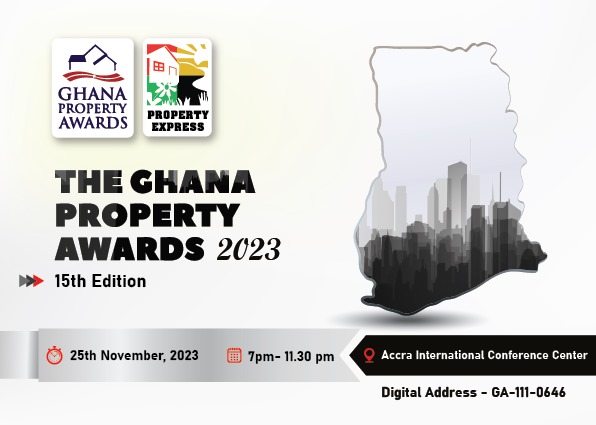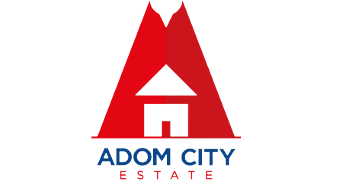
Ghana, like many other developing nations, faces the challenge of providing adequate housing for its growing population. The housing sector plays a crucial role in shaping the nation’s future as it strives for economic development and urbanisation.
Ghana’s housing policies, regulations, and evaluation mechanisms have a significant impact on sustainability, innovation, and the delivery of properties within the construction and hospitality industries.
The NHP aims to provide affordable and decent housing for all Ghanaians, with a particular focus on low and middle-income earners. It emphasises on the promotion of sustainable building practices, slum upgrading, and the provision of affordable financing options.
Regulations in the Housing Sector
Effective regulations are essential to ensure the quality, safety, and sustainability of housing developments. Ghana has several regulations and building codes in place:
Building Code
The Ghana Building Code sets the standards for construction practices, including design, materials, and safety measures. Compliance with this code is crucial to ensure the durability and safety of structures.
Environmental Impact Assessment (EIA)
EIAs are required for major construction projects to assess their environmental impact and ensure that sustainable practices are followed.
Land Use and Spatial Planning:
Effective land use planning is critical to prevent haphazard development, control urban sprawl, and promote sustainable urbanisation.
Evaluation and Impact Assessment
Continuous evaluation and impact assessment of housing policies and regulations are essential to ensure their effectiveness. Here are some ways Ghana evaluates its housing policies:
Housing Delivery:
The government assesses the progress of housing delivery projects to determine their impact on reducing the housing deficit and improving living conditions.
Sustainability Metrics
Sustainability indicators, such as energy efficiency, water conservation, and waste management, are used to evaluate the sustainability of housing projects. These metrics help identify areas for improvement and ensure that future developments adhere to sustainable practices.
Stakeholder Feedback
Input from stakeholders, including developers, residents, and experts, is collected to assess the effectiveness of housing policies and regulations. This feedback helps identify challenges, gaps, and opportunities for improvement.
Implications for the Property, Construction, and Hospitality Sectors
Ghana’s housing policies, regulations, and evaluation mechanisms have significant implications for the property, construction, and hospitality sectors.
Property Development: The availability of affordable housing and supportive policies encourages property development, attracting investors and stimulating economic growth. Developers can leverage government initiatives and regulations to meet the demand for housing and contribute to the nation’s development.
Construction Industry: The implementation of building codes and regulations ensures the quality and safety of construction projects. This promotes professionalism within the construction industry and enhances the reputation of Ghana’s construction sector.
Hospitality Sector: The availability of affordable and sustainable housing options contributes to the growth of the hospitality sector. Tourists and business travellers require suitable accommodation, and the development of hotels and serviced apartments can support the tourism industry.
Sustainable Development: Ghana’s emphasis on sustainable building practices and environmental impact assessment promotes sustainable development within the property, construction, and hospitality sectors. This contributes to the preservation of natural resources, the reduction of the carbon footprint, and overall environmental sustainability.
Ghana’s housing policies, regulations, and evaluation mechanisms play a crucial role in shaping the nation’s property, construction, and hospitality sectors. Through initiatives like the National Housing Policy, affordable housing projects, and effective regulations, Ghana aims to provide adequate and sustainable housing for its citizens.
Continuous evaluation and stakeholder feedback help identify areas for improvement and ensure the effectiveness of these policies and regulations. By promoting property development, enhancing the construction industry, and supporting sustainable practices, Ghana is working towards a brighter future for its housing sector.
Ghana at the moment has a housing crisis. Supply falls consistently below demand, rising rents and high house prices create worsening affordability pressures, home ownership has declined and homelessness is increasing. There are considerable challenges in the planning system which inhibits housing delivery. Tackling these problems will require innovative thinking and African-led research with an applied focus.
Developing an innovative understanding of the housing market as a system, its role as infrastructure and exploring social impact neighbourhood strategy within the context of social housing.
The theme for this anniversary awards and dinner’s night is “Housing Policy, Regulation & Evaluation Impact on Delivery”.
The Fifteenth Edition of the Ghana Property Awards comes off on the Saturday 25th of November 2023 at the Accra International Conference Centre in Accra, Ghana
SUPPORTED BY

LOCATION
In Person
Accra International Conference Centre, Ridge Accra -Ghana. GA-111-0646
DATE & TIME
Saturday, November 25, 7pm – 11.30 pm
If you have received a shortlisted nomination by our research team, confirm your nominations by completing the form. This way your nomination(s) is registered within the system. Usually, your invite will come with three or two other companies. The next stage will be a questionnaire, followed by an interview and then a visit of our TEAM technical reviewers.
You have to follow the strict guidelines laid down by Ghana Property Awards. It’s only through this process which is accepted by the awarding team. We need your cooperation during this process.
SPONSORING THE AWARDS
ATTENDING
Attending the awards & dinners night is by first obtaining your ticket and securing your QR code. You cannot attend the event without the QR code. Even those with a corporate table, the administrators must go online to register their members of their corporate table. Once Registered a QR code will be sent to their phone privately.
AWARDS, CORPORATE TABLE
The event organiser will offer a corporate table of seating ten people. Your seating is by location in the venue. The cost of seating is arranged from VVIP to ordinary seating.
A corporate table cost starts from Ghc15,000. You need to supply your artwork on time for your table to be set up. You have to provide your own pull up banners. Any other request comes at an extra cost.
PRESENTATION
The Event allows 2 to 3 minutes Presentation. First Come first served.
CONTACT
Iren Agyenkwa :
eMmail: info@ghanapropertyawards.com
Malwine Atawakumah Boamah
eMail : malwine.pegroup@gmail.com
Website https://www.ghanapropertyawards.com/

